Otto Gildemeister | |
|---|---|
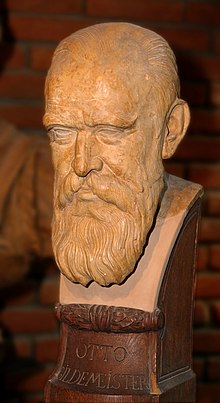 Bust of Gildemeister at the Focke-Museum in Bremen |
Otto Gildemeister (13 March 1823 Bremen - 26 August 1902) was a German journalist and translator.
Otto Gildemeister | |
|---|---|
 Bust of Gildemeister at the Focke-Museum in Bremen |
Otto Gildemeister (13 March 1823 Bremen - 26 August 1902) was a German journalist and translator.
In 1850 he became editor-in-chief of the Weser-Zeitung of Bremen. He is known for his German renderings of Byron's complete works (1864–65; 4th ed. 1888); of a number of plays of Shakespeare, including the historical ones, for the Bodenstedt edition; of Shakespeare's Sonnets (1871); Ariosto's Orlando Furioso (4 vols., 1882); and Dante's Divina Commedia (1888; 3d ed. 1900).
He was the brother of German architect Karl Gildemeister.
This article includes a list of references, related reading or external links, but its sources remain unclear because it lacks inline citations .(July 2014) |
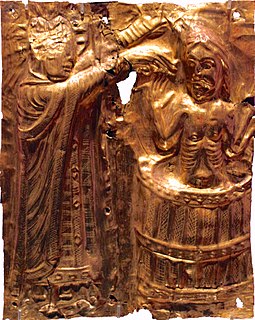
Harald "Bluetooth" Gormsson was a king of Denmark and Norway.
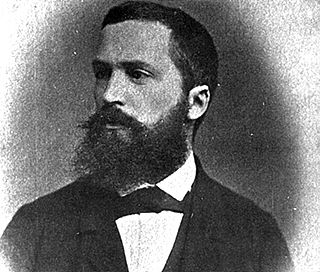
Friedrich Hermann Otto Finsch was a German ethnographer, naturalist and colonial explorer. He is known for a two-volume monograph on the parrots of the world which earned him a doctorate. He also wrote on the people of New Guinea and was involved in plans for German colonization in Southeast Asia. Several species of bird are named after him as also the town of Finschhafen in Morobe Province, Papua New Guinea and a crater on the moon.
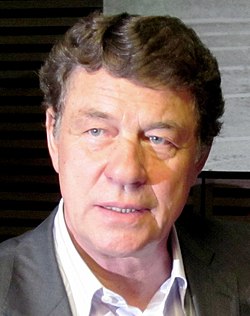
Otto Rehhagel is a German former football coach and former football player.
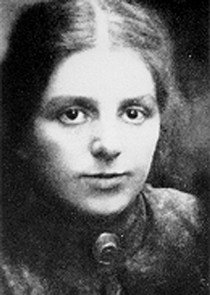
Paula Modersohn-Becker was a German painter and one of the most important representatives of early expressionism.

Nicolaus Delius was a German philologist. Delius was born at Bremen; he was distinguished especially as a student of Shakespeare and for his edition of Shakespeare's works.

The Kunsthalle Bremen is an art museum in Bremen, Germany. It is located close to the Bremen Old Town on the "Culture Mile". The Kunsthalle was built in 1849, enlarged in 1902 by architect Eduard Gildemeister, and expanded several more times, most notably in 2011. Since 1977, the building has been designated a Kulturdenkmal on Germany's buildings heritage list.

Ben Becker is a German film and theatre actor.
Heinrich Bulthaupt was a German poet, dramatic author, and lawyer, as well as librarian of his native town, Bremen. Many of Bulthaupt's works found considerable widespread popularity in the lyrical and dramatic genres.
Johann Gildemeister was a German Orientalist born in Kröpelin.

Arthur Heinrich Wilhelm Fitger was a German painter, art critic, playwright and poet.
The Stade Region emerged in 1823 by an administrative reorganisation of the dominions of the Kingdom of Hanover, a sovereign state, whose then territory is almost completely part of today's German federal state of Lower Saxony. Until 1837 the Kingdom of Hanover was ruled in personal union by the Kings of the United Kingdom of Great Britain and Ireland.
Karl Gildemeister was a German architect.
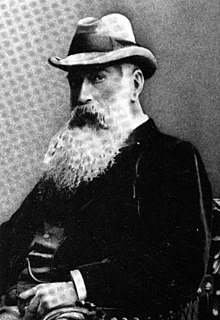
Johann Georg Poppe, often called Johannes Poppe by English-speaking writers, was a prominent architect in Bremen during the German Gründerzeit and an influential interior designer of ocean liners for the Norddeutscher Lloyd. He worked in an eclectic mixture of historical revival styles sometimes called "Bremen Baroque".
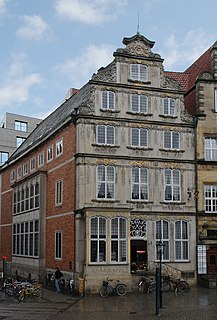
Haus der Stadtsparkasse is a Rococo landmark on the "Marktplatz" in Bremen, Germany. It was completed in the 1950s combining the historic front gable from another site with the more recent architecture of the remainder of the building.
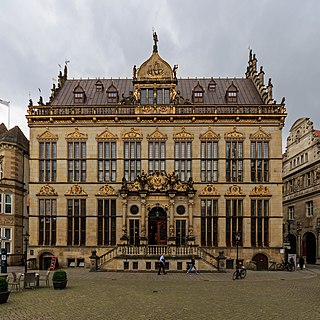
The Schütting, situated on the Marktplatz in Bremen, initially served the city's merchants and tradesmen as a guild house. In 1849, it became Bremen's chamber of commerce. Since 1973, it has been under monument protection. It lies on the south site of the Bremen marketplaces directly across from the town hall.
The following is a timeline of the history of the city of Bremen, Germany.

The Langenstraße is a historical street in the old town of Bremen in the north of Germany. First mentioned in 1234, it is one of Bremen's oldest streets and one of the most important for the city's merchants. It no doubt originated at the time when the first settlements grew up on the north bank of the Balge. It runs west from the Marktplatz parallel to the River Weser over Bürgermeister-Smidt-Straße to Geeren. Many of the street's historic buildings were seriously damaged during aerial bombings in the Second World War but were carefully reconstructed in the postwar period.
Eberhard Gildemeister (1897–1978) was a German architect who was mainly active in Bremen. In addition to a number of churches and residential buildings, he designed the Sparkasse building on Bremen's market square.

Amalie Murtfeldt was a German painter, especially of portraits.
"The Spectre-Barber" is a short story, written by Johann Karl August Musäus included in his satirical retellings of collected folk stories, Volksmärchen der Deutschen (1786). The story was translated into French by Jean-Baptiste Benoît Eyriès as part of his collection of German ghost-stories Fantasmagoriana (1812), which inspired Mary Shelley's Frankenstein (1818) and John William Polidori's "The Vampyre" (1816). This French translation was then partially translated into English in Tales of the Dead (1813), followed by more complete translations from the original German, such as those by Thomas Roscoe (1826), and Thomas Carlyle (1827), with a child-friendly abridged version being published in 1845.